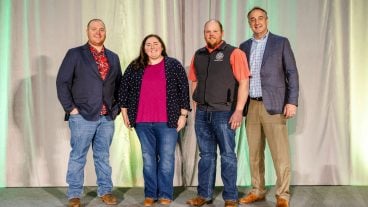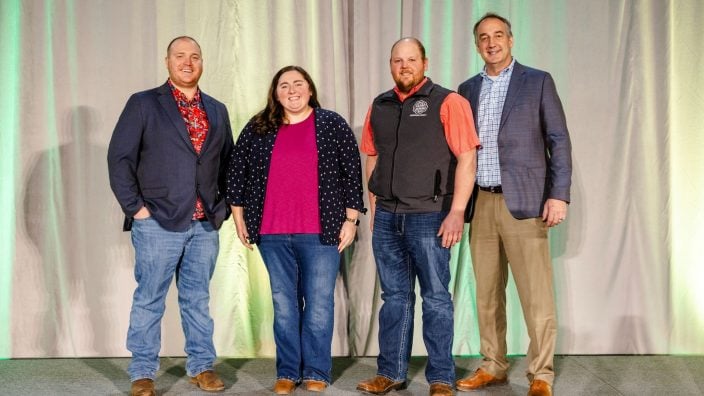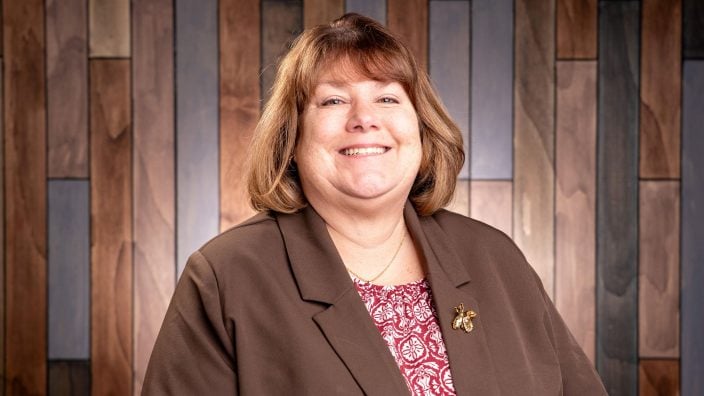Applications for Ohio Farm Bureau Health Plans now available
Members have three ways to apply: contacting a certified agent, calling 833-468-4280 or visiting ohiofarmbureauhealthplans.org.
Read MoreThe more you plan ahead, the quicker you’ll be able to get back up and running following a disruption to your business.
If you are a farmer, rancher or agribusiness operator, you may feel like you aren’t at risk or do not need to create a formal business continuity and contingency plan. It’s a process that takes time and often involves thinking about difficult situations that can disrupt operations. It’s something most people don’t want to think about.
But situations like severe weather and health and safety scares like the COVID-19 pandemic show the importance of being prepared for when things don’t go as planned. The more you plan ahead, the better you’ll be able to adjust to situations like these that disrupt operations. And the better you’ll be able to adjust, the quicker you’ll be able to get back up and running.
Building a business continuity and contingency plan starts with a thorough self-assessment.
Ask yourself these questions:
The disruptions that have the highest combination of severity and probability of interrupting or halting your business are the ones that require detailed, structured plans.
 For example, the COVID-19 pandemic has posed the greatest threat to the farm workforce given its health risk and the ramifications of widespread work stoppages. But a global pandemic is far less likely than crop damage from a strong windstorm or tornado.
For example, the COVID-19 pandemic has posed the greatest threat to the farm workforce given its health risk and the ramifications of widespread work stoppages. But a global pandemic is far less likely than crop damage from a strong windstorm or tornado.
The latter may have a more localized adverse effect on your operation, but it’s historically happened with a much higher frequency than the former. Consider the effects of such dangers specific to your operation as well as on a more macro-level, taking into account your customers and marketplace beyond the farm gate.
Once you’ve adequately prioritized your farm’s vulnerabilities and greatest risks, consider your output and how it will be affected by those risks. Just like with an initial self-assessment, this step involves asking a series of questions your agribusiness continuity and contingency plan should answer.
Ask questions like these:
The answers to the above questions will likely involve your workforce and how it can contribute to resuming operations in a comprehensive contingency plan. Think about the specific tasks for which each member of your workforce is responsible and how those tasks could be disrupted in the event of something like a severe storm or illness. Consider how you can delegate different jobs to individual employees differently if some parts of your business are disrupted.
And if those jobs are temporarily slowed or halted altogether, think about how to continue to meet the needs of your workers. Doing so has potential long-term benefits; planning for how you will work through a localized COVID-19 outbreak, for example, accounts for the health and safety needs of workers in the short term and instills confidence that you’re acting both on behalf of your agribusiness as well as their safe, secure contributions to its productivity.
 At the end of the day, building a well-thought-out contingency and continuity plan for your agribusiness may not be the most desirable task in the world, but given its importance in the event of something like a severe storm or outbreak of an illness, it’s something every agribusiness owner and manager should prioritize.
At the end of the day, building a well-thought-out contingency and continuity plan for your agribusiness may not be the most desirable task in the world, but given its importance in the event of something like a severe storm or outbreak of an illness, it’s something every agribusiness owner and manager should prioritize.
Consult your operation’s team of trusted advisors, including your local
Nationwide farm agent, to start the process today.
Additional COVID-19 resource
In the midst of a pandemic, it is important to stay safe and prepared. Nationwide’s COVID-19 resources can help you make the right decisions for your farm and employees moving forward.


Members have three ways to apply: contacting a certified agent, calling 833-468-4280 or visiting ohiofarmbureauhealthplans.org.
Read More

Legacy nutrient deductions enable new farmland owners to claim deductions on the nutrients within the soil on which healthy crops depend.
Read More

Farmers, agribusinesses and community members are encouraged to nominate their local fire departments for Nationwide’s Nominate Your Fire Department Contest through April 30.
Read More

Introduced by Sen. Paula Hicks-Hudson, SB 120 would establish the Urban Farmer Youth Initiative Pilot Program.
Read More

Gases, vapors, and fumes can all create risk. How can we measure and protect ourselves from them?
Read More

The Ohio Farm Bureau’s Young Agricultural Professionals State Committee has named its 2026 leadership and the individuals who will be serving on the state committee for 2026-2028.
Read More

The Ohio Farm Bureau Foundation has multiple scholarships available to Ohio students from rural, suburban and urban communities who are pursuing degrees with a connection to the agricultural industry.
Read More

With 100% bonus depreciation now permanent, farmers can deduct the full cost of a new agricultural building in the year it’s placed in service.
Read More

Lincoln Deitrick was named the Outstanding Young Farmer, Denver Davis won the Excellence in Agriculture Award, and Margaret Houts won the Discussion Meet.
Read More

Michelle Downing of Franklin County has been named finance director of county operations for Ohio Farm Bureau.
Read More